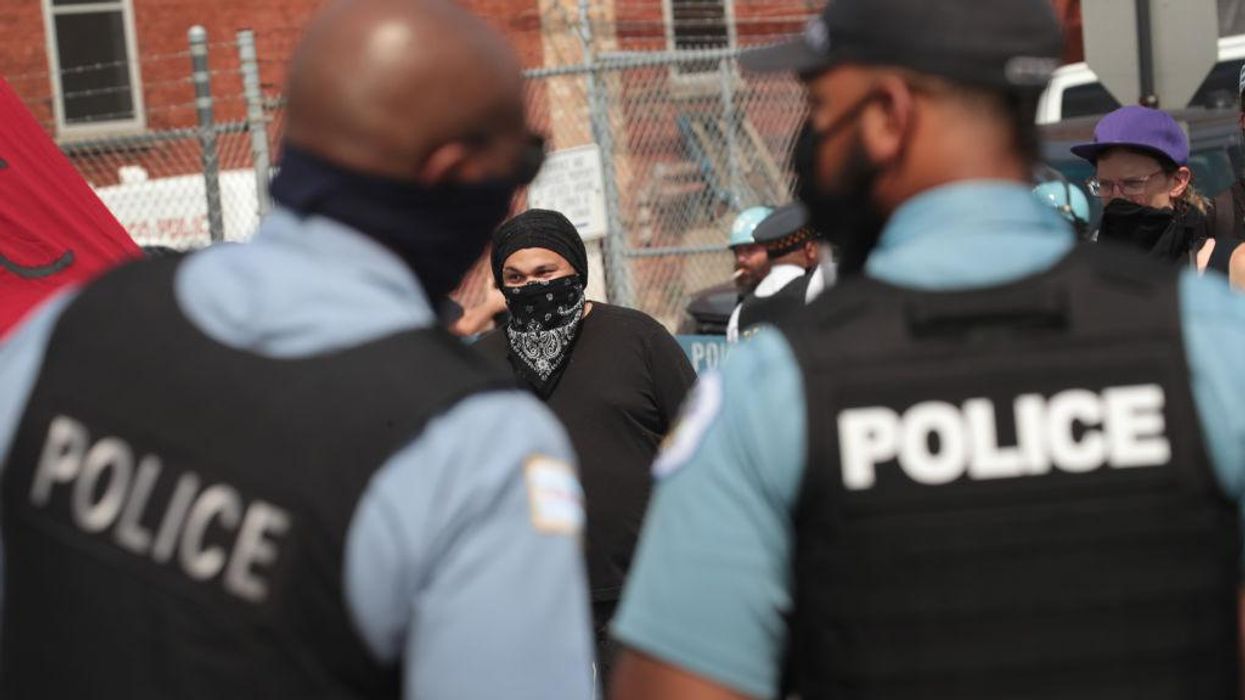
Scott Olson/Getty Images

After only about two months of serious deliberation, the Chicago Police Department on Wednesday unveiled a new policy that largely ends the practice of officers pursuing suspects on foot.
Under the new policy, set in motion following the recent police shootings of 13-year-old Adam Toledo and 22-year-old Anthony Alvarez, officers are not permitted to chase individuals suspected of committing a minor traffic offense or low-level misdemeanor unless that individual poses an "obvious threat" to the community.
The policy also urges officers to seek ways to avoid foot chases altogether, directing them to perhaps set up a perimeter, conduct surveillance, or consider whether the suspect could be apprehended at another time or place.
Ultimately, officers will be forced — in the heat of the moment — to weigh the potential risk to public safety against the need for immediate apprehension.
"Officers must ask themselves if the need to apprehend the subject is worth the risk to the responding officers, the public, or the offender," CPD Superintendent David Brown said during a news conference Wednesday.
"This [will] give officers an opportunity, maybe to slow things down and have a better outcome when they're trying to capture suspects," he added. "That is the intent of a foot pursuit policy, you know ... let's use de-escalation, let's set up a perimeter if need be. Let's choose the right place to capture him and the right time to capture him or her."
As if that wasn't enough already to consider when deciding whether or not to pursue a suspect on foot, officers are also instructed to discontinue ongoing foot chases if they become separated from their partner, are unaware of their location, someone is injured, if there is excessive distance or nearby obstacles preventing an apprehension, or if they will not be able to control the subject of the chase in a confrontation.
Chicago Mayor Lori Lightfoot, who led the charge for foot chase reform following Toledo's and Alvarez's deaths, praised the new policy as "a step forward in our mission to modernize and reform our police department."
But critics are calling the policy an overreaction that will inevitably empower criminals and lead to more crime on the streets.
Chicago's Fraternal Order of Police President John Catanzara noted that "Chicago recovers more weapons than New York and [Los Angeles] combined" and that "most of those weapons are recovered either as the result of a vehicle stop or a foot chase."
In April, Lightfoot even acknowledged the potential danger that could result from such a policy, saying, "I don't want people out there who are dangerous to think, 'Well, if I just run, then I'm safe, and I can continue to wreak havoc' ... We can't live in that world either."
The guidance released Wednesday will serve as an "interim" policy that will go into effect June 11, after which, the public and an independent monitor will weigh in.